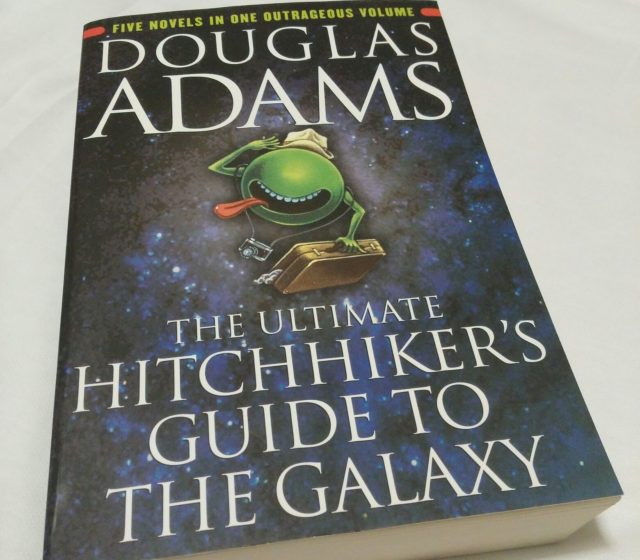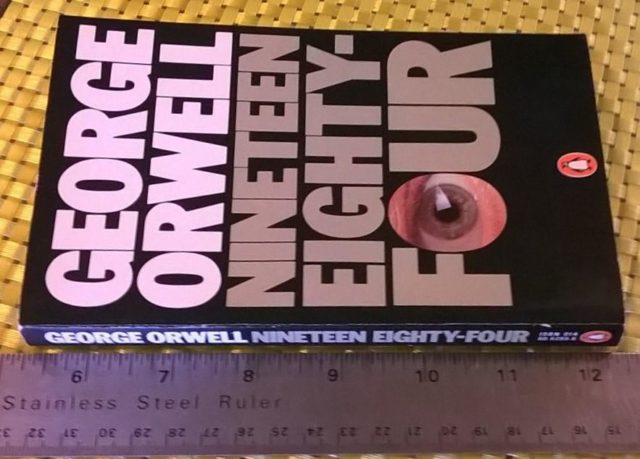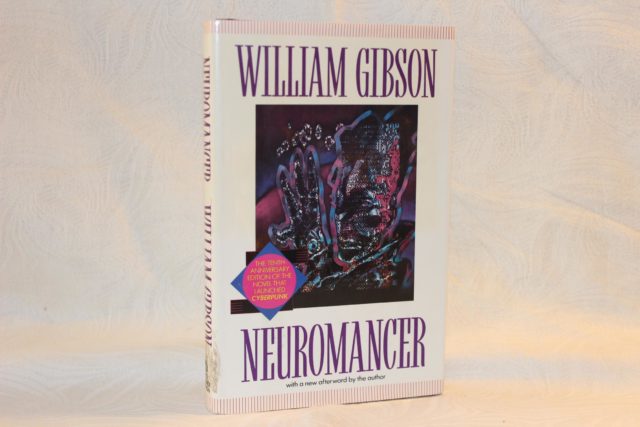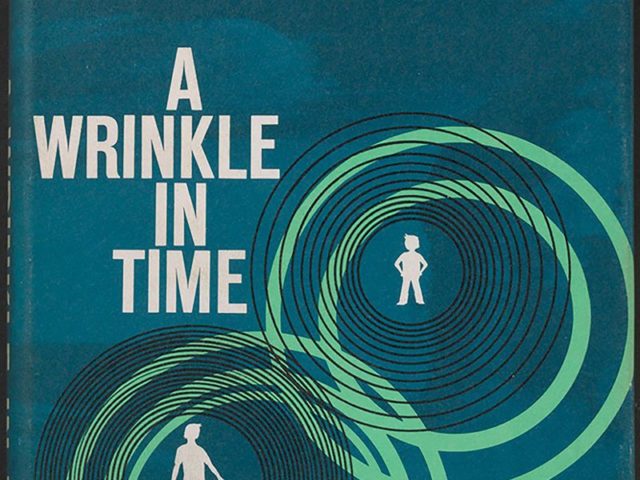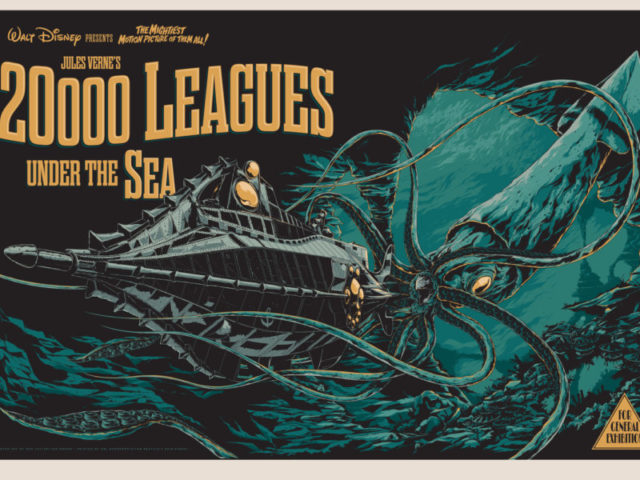Due to the popularity of the genre, there has been an influx over the years of great science fiction books, most especially in the 20th century, the golden age of science fiction. With that being said, here are the 20 best science fiction books that stand out the most.
20 Best Science Fiction Books of All Time
1. The Hitchhiker’s Guide to the Galaxy (1979) – Douglas Adams
The Hitchhiker’s Guide to the Galaxy is the first of five books in the Hitchhiker’s Guide to the Galaxy comedy science fiction “trilogy” by author Douglas Adams. The story follows the adventures of protagonist Arthur Dent through the galaxy as the only survivor from Earth after the planet is destroyed by the alien race Vogons to make way for an intergalactic bypass. In the first three months of the book hitting the shelves, 250,000 copies were sold. In 1984, Adams received the Golden PAN award after the book had sold over one million copies.
2. Dune (1965) – Frank Herbert
Cited as one of the best-selling science fiction books of all time and considered by some critics to be the best ever written, Dune is the first installment of the Dune’s series of books. The book, which is set in the distant future amidst a feudal interstellar society where life and culture revolve around the use and exchange of the spice melange, a drug that extends life and enhances mental abilities, follows the life of a young Paul Atreides, heir of House Atreides, who is given stewardship of the planet Arrakis, the only place in the universe where the substance is found.
3. Ender’s Game (1985) – Orson Scott Card
Set at an unspecified date in the future that is full of fascinating alien technology, Ender’s Game follows the story of protagonist Ender Wiggin, a genius who amongst other children, is trained from a very young age in preparation for an interplanetary war against an insectoid alien species known as the buggers.
4. Fahrenheit 451 (1953) – Ray Bradbury
Taking place at an unspecified American Midwestern city and in the future, Fahrenheit 451 tells a story of an American society where books are outlawed and firemen are charged with burning any books that are found while the television dominates. Along the line, however, one fireman gets disillusioned with his duties and begins to see the value in books.
5. Nineteen Eighty-Four (1949) – George Orwell
In this one of the multiple science fiction books written by George Orwell, the writer imagines a futuristic society where civilization has been damaged by war, civil conflict, and revolution and a totalitarian government watches over all citizens and orchestrates all activities.
6. Foundation (1951) – Isaac Asimov
The first novel in Isaac Asimov’s The Foundation Series, Foundation is a collection of five interrelated short stories that tell the story of an institute founded by a band of psychologists led by psychohistorian Hard Seldon to preserve the best of galactic civilization after the collapse of the Galactic Empire.
7. Brave New World (1932) – Aldous Huxley
Described as a prophetic novel due to its anticipation and prediction of a number of technological advancements in society, Brave New World is set in the futuristic world where there is an intelligence-based social hierarchy and genetically modified people. The book goes on to describe the horrors of a future world with no individual freedom at all.
8. Stranger in a Strange Land (1961) – Robert A. Heinlein
Named in 2012 as one of the “Books that Shaped America” by the US Library of Congress, Stranger in a Strange Land tells the story of a human named Valentine Michael Smith who was born and raised on Mars but eventually comes to Earth where he is a marvel to the Western world due to his superhuman abilities.
9. The Time Machine (1985) – H.G. Wells
In this science fiction book, H.G. Wells writes about a British inventor referred to as The Time Traveller who creates a time machine that sends him far into the future where he witnesses ape-like troglodytes called Morlocks, who live in darkness underground and surface only at night, prey on childlike adults known as Eloi.
10. Neuromancer (1984) – William Gibson
Set in the future, the Nebula Award, Philip K. Dick Award, and Hugo Award-winning Neuromancer follows the life of a low-level hustler and washed-up computer whiz named Henry Dorsett Case who is hired for one last job that brings him up against a powerful artificial intelligence.
11. Slaughterhouse-Five (1969) – Kurt Vonnegut
Described as a science fiction-infused anti-war novel, Slaughterhouse-Five follows the experiences of Billy Pilgrim during World War II where he was an American soldier and also a chaplain’s assistant. Pilgrim manages to return home from the war but ends up being kidnapped by aliens from the planet Tralfamadore, who teach him that time is an eternal present.
12. I, Robot (1950) – Isaac Asimov
I, Robot features a collection of various science fiction short stories or essays by writer Isaac Asimov themed around the interaction of humans, robots, and morality. It follows the fictional 21st-century character, Dr. Susan Calvin, chief robopsychologist at U.S. Robots and Mechanical Men, Inc., who raises questions about her life’s work in developing robots and their ultimate perfection in the future which might render humanity obsolete.
13. 2001: A Space Odyssey (1968) – Arthur C. Clarke
2001: A Space Odyssey is a tense showdown between man and machine as it explores technological advancement, both the promise and danger of it. The story follows the lives of two astronauts on their journey into space and how their lives are jeopardized by the jealousy of their computer, a HAL 9000.
14. The War of the Worlds (1897) – H.G. Wells
Widely thought to be one of the earliest science fiction books that detail a conflict between humans and an extraterrestrial race, The War of the Worlds is a story about the invasion of earth by Martians from Mars following the dwindling of the planet’s resources. Told in the first person narrative, the story follows an unnamed protagonist in Surrey and his younger brother in London.
15. A Wrinkle in Time (1962) – Madeleine L’Engle
A Wrinkle in Time explores the battles between light and darkness, and goodness and evil. It follows the story of a girl and boy whose father, a government scientist, has gone missing after working on a mysterious project called a tesseract. The young siblings and their friend then go ahead to embark on a journey through space and time, from one universe to another, on a quest to rescue their father from evil forces, while also saving the world.
16. Flowers For Algernon (1959) – Daniel Keyes
Flowers For Algernon is about an experimental brain surgery procedure that was first conducted on a mouse before being done on a human test subject. The surgery’s aim was to increase the mouse’s intelligence, which proved to be successful, prompting the same tests to be done on the book’s main character, a dull-witted Charlie Gordon. Things soon begin to look up for Gordon, however, there is a twist to the tale.
17. The Martian Chronicles (1950) – Ray Bradbury
The Martian Chronicles is another science fiction book that depicts a conflict between humans and an extraterrestrial race. The short story collection chronicles the colonization of Mars by humans after the earth is atomically devastated, and the ensuing conflict that originates between aboriginal Martians and humans.
18. The Handmaid’s Tale (1985) – Margaret Atwood
Set in the near-future in a totalitarian state resembling a theocracy that has overthrown the United States government, The Handmaid’s Tale follows the life of a woman called Offred and explores themes of women in subjugation in a patriarchal society as women in the society are not allowed to read and are valued only as long as they are viable for reproduction. Read Also: 10 of The Hottest New York Times Bestselling Books
19. Do Androids Dream of Electric Sheep? (1968) – Philip K. Dick
Set in a post-apocalyptic San Francisco, Do Androids Dream of Electric Sheep? follows the story of a bounty hunter named Rick Deckard who is tasked with killing six escaped Nexus-6 model androids (robot servants identical to humans). There is also a secondary plot that follows the character John Isidore, a man of low intelligence levels that aids the fugitive androids.
20. 20,000 Leagues Under the Sea (1870) – Jules Verne
Through the perspective of the character Professor Pierre Aronnax, 20,000 Leagues Under the Sea is a story told about the adventures of Captain Nemo and his submarine Nautilus, which was previously reported to be a mysterious seas monster. Following speculation that the supposed sea monster might be of harm to people, an expedition that includes Prof. Aronnax, his faithful servant Conseil, and Canadian whaler and master harpoonist Ned Land, are assembled to destroy the monster but the group is, however, later captured by the captain.


